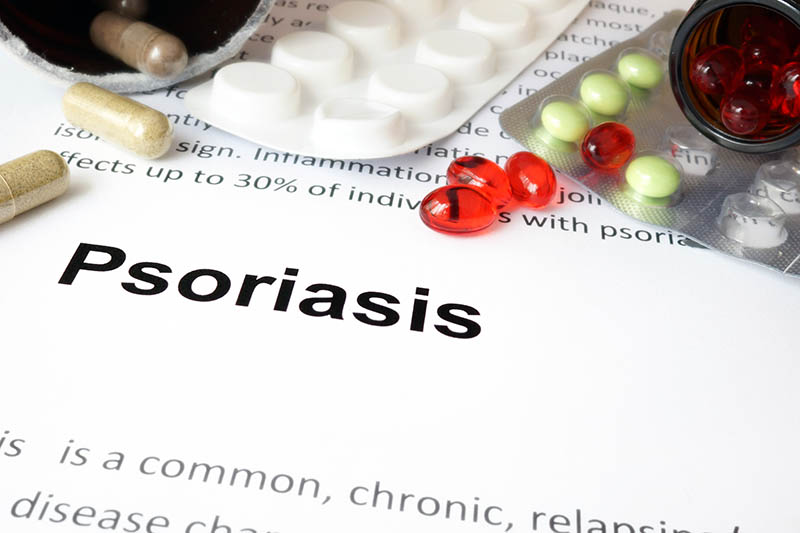Plaque psoriasis is an immune disease that is active inside your body; however, it shows up on the outside. Plaque psoriasis is a chronic disease and it lasts a long time. You can talk with your doctor about it, however, it is important that you see a dermatologist because he or she is a specialist who can effectively treat this disease.
There are several factors that initiate the development of this skin disease such as genetics, the immune system, and environment. This skin disease begins when the immune system puts out false signals that speed up the growth of skin cells. Once this happens, skin cells grow and spread. Then, red flaky patches begin to appear on the surface of the skin. They can appear anywhere on the skin.

Common Symptoms of Plaque Psoriasis
Stress is the most likely element to trigger a psoriasis flare up. Certain foods can also trigger a flare up. Common symptoms of plaque psoriasis are reddish, raised areas on inflamed skin, cracked and dry skin, scaly, silver-colored patches in inflamed areas, sore or burning skin, and small, red spots.
Different Treatments for Plaque Psoriasis
- Treatment for plaque psoriasis consists of plaque psoriasis creams, ointments foams or gels, phototherapy, systemic medications and biologic medications. Biologic medications are usually taken by injection. They target certain parts of the immune system.
- Biologics are new drugs that treat this skin disease. Biologics are medicines that are made from substances found in living things. These substances are injected into your skin or bloodstream.
- Another treatment option is Apremilast (Otexla). Apremilast is a drug that you take by mouth. It has been approved to treat this skin concern, as well as plaque psoriasis in adults. It reduces an enzyme—PDE-4–and controls inflammation. Side effects from Apremilast are nausea, diarrhea, and headache.
- Light therapy is also used to treat psoriasis. Light therapy is used if the rash is more widespread. This is done in a doctor’s office or by using a special box that can be used in your home. Going out in the sun offers some relief; however, it can raise the risk of skin cancer. Talk with your doctor first before going out in the sun.
How to Prevent Plaque Psoriasis
Things you and can do to deal with this skin concern are avoiding triggers like stress and smoking. Watching your diet can also help, as well as taking care of your skin by using a good moisturizer. Getting support from family and friends can also help.
This serious skin concern can cause depression because it hinders and adds stress to social situations. Of course, working with your doctor, talking with him or her about how you are doing and any changes that you observe in your skin, can help.
Plaque psoriasis is an immune disease that is active inside your body; however, it shows up on the outside. Talk with your doctor or dermatologist and find out about plaque psoriasis help and how to manage this immune disease. As mentioned above, there are several effective treatment options available that lessen the effects of plaque psoriasis.